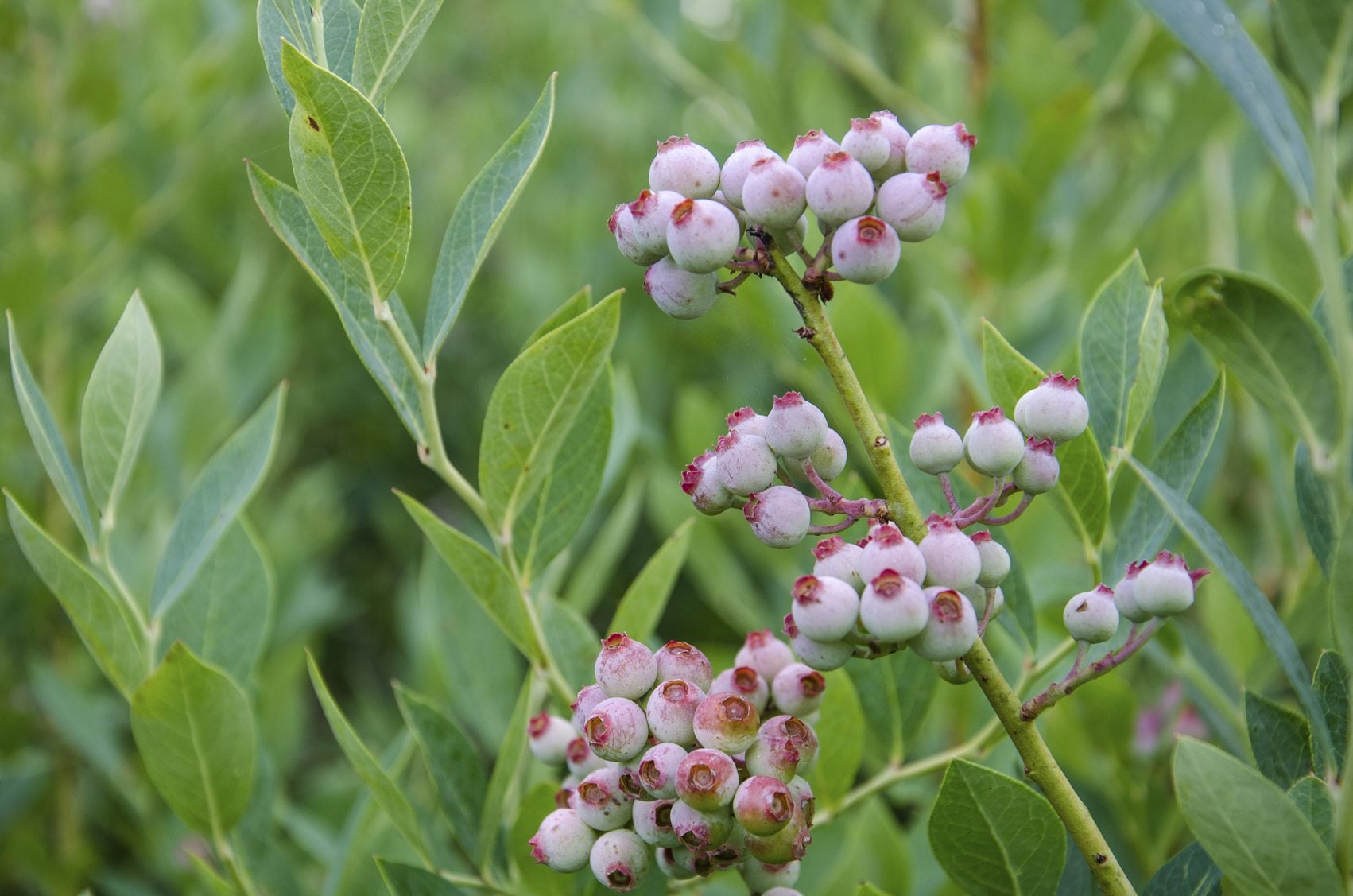Blueberries Aren’t Ripening: What To Do When Blueberries Won’t Ripen

So, you’ve planted some blueberries and are anxiously awaiting your first harvest, but the blueberry fruit will not ripen. Why are your blueberries not ripening? There are a number of reasons for blueberry fruit that will not ripen.
Why are My Blueberries not Ripening?
The most likely reason for blueberries that won’t ripen is the type of berry. Some varieties require longer periods of cold winter temps to fruit properly. If you live in a warmer region, the plants may not have had a long enough chill period. Blueberries bud in summer and flower the following spring, yielding berries from early summer to early fall. Shorter fall days combined with cooler night temperatures signal to the plant that it is time to become dormant. Warm winter temps trigger the early opening of the buds. Late winter or early spring frosts can then kill them. So, blueberries have evolved to require chilling periods; that is, a certain amount of time at winter temperatures below 45 degrees F. (7 C.). If this chilling period is cut short, berry development and ripening date will be delayed. If you are concerned about your blueberries not ripening, it may be for the simple reason that you don’t know when blueberries ripen. It may be because of the cultivar that you have planted. Some cultivars ripen in the late summer or early fall and stay green longer than other types of blueberries or, as mentioned above, require longer chilling times. Be sure to select the correct cultivar for your region. If you live in a warmer region, be sure to plant low-chill blueberry varieties, most likely a cultivar of Rabbiteye or Southern Highbush blueberry. Research the cultivar carefully, as not all low-chill blueberries are early bearers.
- Early maturing Rabbiteye blueberries are native to the southeastern United States. They thrive in USDA zones 7 to 9 and need 250 or fewer chill hours. The earliest maturing of these are ‘Aliceblue’ and ‘Beckyblue.’
- Early southern highbush varieties are hardy to USDA zones 5 to 9. The earliest maturing of these is ‘O’Neal,’ but it needs a whopping 600 chill hours. Another option is ‘Misty,’ which is hardy to USDA zones 5 to 10 and only needs 300 chill hours, fruiting in early summer and again in early fall. Other cultivars include ‘Sharpblue,’ which needs only 200 chill hours, and ‘Star,’ which requires 400 chill hours and is hardy to USDA zones 8 to 10.
Lastly, two other reasons for blueberries that won’t ripen might be a lack of sun or soil that is not acidic enough. Blueberries like their soil to have a pH or 4.0 to 4.5.
How to Determine Ripeness in Blueberries
Once the ripening of blueberries occurs, it helps to understand exactly when they will be ready for harvesting. Berries should be blue overall. They will typically fall from the bush easily. Also, ripened blueberries that are grayish blue will be far sweeter than those that are glossier in color.
Sign up for the Gardening Know How newsletter today and receive a free copy of our e-book "How to Grow Delicious Tomatoes".

Amy Grant has been gardening for 30 years and writing for 15. A professional chef and caterer, Amy's area of expertise is culinary gardening.
